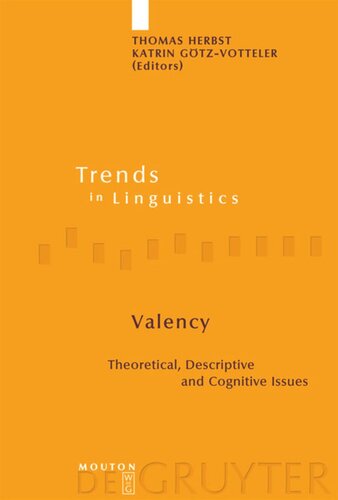
Valency: Theoretical, Descriptive and Cognitive Issues PDF
406 Pages·2007·5.076 MB·English
Most books are stored in the elastic cloud where traffic is expensive. For this reason, we have a limit on daily download.
Preview Valency: Theoretical, Descriptive and Cognitive Issues
Description:
In recent years, research on valency has led to important insights into the nature of language. Some of these findings are published in this volume for the first time with up-to-date accounts of language description and new reflections on language, above all for English and German. The volume also presents examples of contrastive analysis, which are of use for all those who deal professionally with these two languages. Furthermore, the articles in the psycholinguistic and computational linguistics section demonstrate the applicability and value of valency theory for these approaches and shed light on a fruitful cooperation between theoretical and descriptive linguistics and applied disciplines.The papers cover the following aspects of valency analysis: (i) theoretical aspects of the valency approach in relation to related theories of complementation (dependency syntax, FrameNet, case roles), (ii) descriptive aspects of valency and complementation, (iii) valency as a concept for the description of cognitive processes in syntactic processing, (iv) contrastive aspects of valency, above all for English and German, and (v) possible computational applications of the valency concept in fields such as automatic syntactic recognition or language processing.The volume combines papers of representatives from different linguistic schools on the topic of complementation. One of the aims is to show how concepts developed for the analysis of one language, in the case of valency often German, can be applied to other languages such as English.
See more
The list of books you might like
Most books are stored in the elastic cloud where traffic is expensive. For this reason, we have a limit on daily download.
